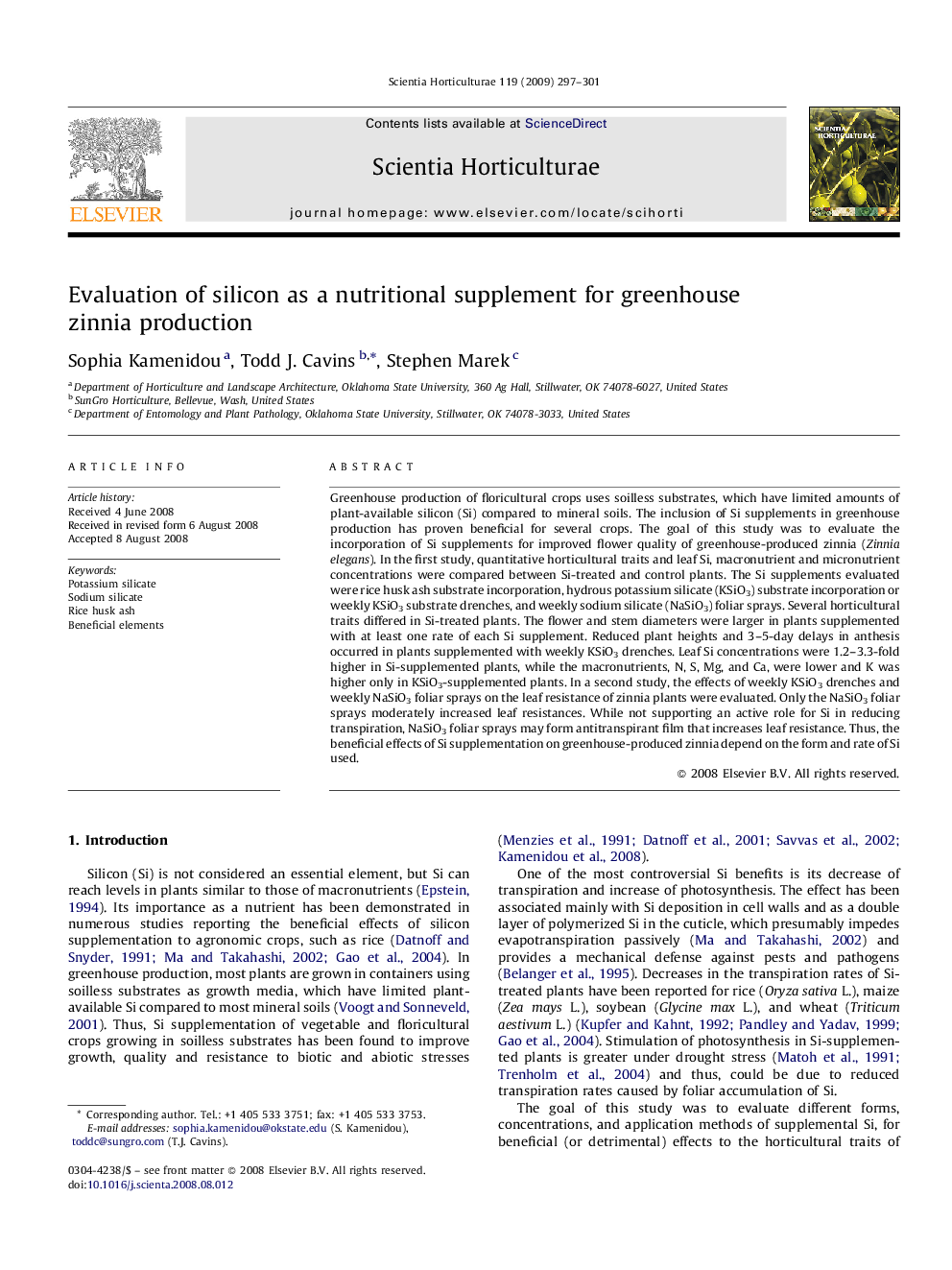| Article ID | Journal | Published Year | Pages | File Type |
|---|---|---|---|---|
| 4569166 | Scientia Horticulturae | 2009 | 5 Pages |
Greenhouse production of floricultural crops uses soilless substrates, which have limited amounts of plant-available silicon (Si) compared to mineral soils. The inclusion of Si supplements in greenhouse production has proven beneficial for several crops. The goal of this study was to evaluate the incorporation of Si supplements for improved flower quality of greenhouse-produced zinnia (Zinnia elegans). In the first study, quantitative horticultural traits and leaf Si, macronutrient and micronutrient concentrations were compared between Si-treated and control plants. The Si supplements evaluated were rice husk ash substrate incorporation, hydrous potassium silicate (KSiO3) substrate incorporation or weekly KSiO3 substrate drenches, and weekly sodium silicate (NaSiO3) foliar sprays. Several horticultural traits differed in Si-treated plants. The flower and stem diameters were larger in plants supplemented with at least one rate of each Si supplement. Reduced plant heights and 3–5-day delays in anthesis occurred in plants supplemented with weekly KSiO3 drenches. Leaf Si concentrations were 1.2–3.3-fold higher in Si-supplemented plants, while the macronutrients, N, S, Mg, and Ca, were lower and K was higher only in KSiO3-supplemented plants. In a second study, the effects of weekly KSiO3 drenches and weekly NaSiO3 foliar sprays on the leaf resistance of zinnia plants were evaluated. Only the NaSiO3 foliar sprays moderately increased leaf resistances. While not supporting an active role for Si in reducing transpiration, NaSiO3 foliar sprays may form antitranspirant film that increases leaf resistance. Thus, the beneficial effects of Si supplementation on greenhouse-produced zinnia depend on the form and rate of Si used.
